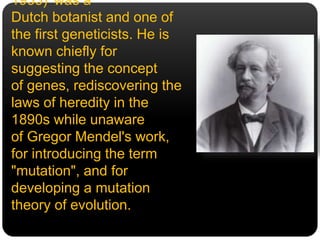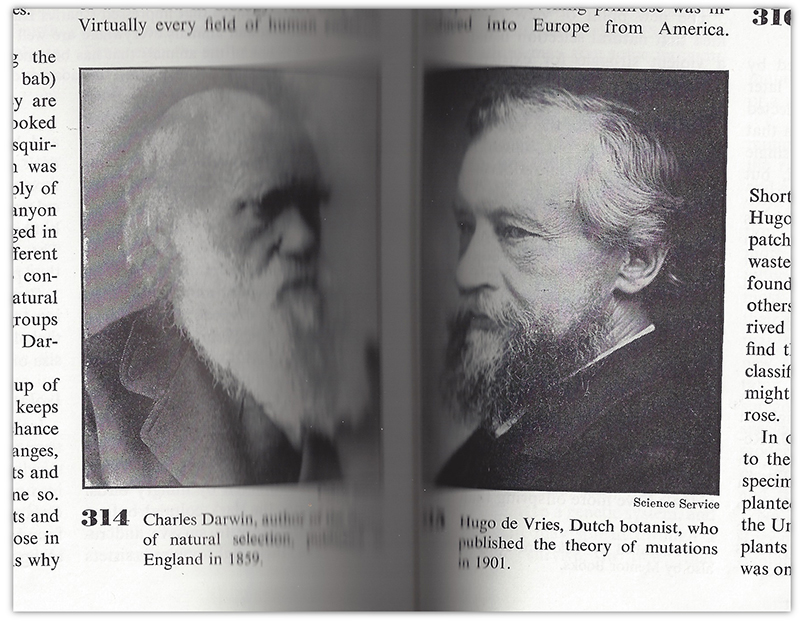Reference



Reference



OpenAI's Answer
Mutation Theory by Hugo de Vries
Hugo de Vries' mutation theory posits that new species are formed through sudden, large scale genetic changes, which he termed as "mutations." These mutations are considered to be the primary driving force of evolution.
Key Points of Mutation Theory:
- Sudden Changes: De Vries proposed that mutations lead to sudden and significant changes rather than gradual changes.
- Random and Directionless: These mutations occur randomly and are not influenced by the environment.
- Speciation: Mutations can lead to the rapid formation of new species in a single step.
For more information, refer to Britannica's entry on Mutation Theory.
Darwin's Theory of Evolution
Charles Darwin’s theory, also known as the theory of natural selection, suggests that species evolve over time through a series of small, incremental changes. The main drivers of evolution in Darwin’s theory are:
- Variation: Within any given population, there is natural variation.
- Inheritance: Traits are passed down from parents to offspring.
- Selection: Certain traits provide a survival or reproductive advantage, making those traits more common in subsequent generations.
- Gradualism: Changes accrue slowly and continuously over long periods.
For more details, you can read about Darwin’s theory on various sources.
Differences Between the Two Theories
-
Mechanism of Change:
- Darwin: Variations are small, continuous, and accumulate gradually over time.
- De Vries: Evolution happens through large, sudden genetic changes (mutations).
-
Role of Natural Selection:
- Darwin: Natural selection is a key mechanism driving evolution.
- De Vries: Downplays the role of natural selection and emphasizes mutations as the primary force.
-
Direction of Change:
- Darwin: Variations are directional and adaptive.
- De Vries: Mutations are random and directionless.
 Image from Textbook History
Image from Textbook History
For further reading, check out this lesson on mutation theory and a detailed comparison of the two theories.
Both theories have significantly contributed to our understanding of evolutionary biology, even if they propose different mechanisms for how species evolve.
Follow Up
Related
How has the concept of evolution changed since Darwin's original theories?
What are some criticisms of traditional Darwinism mentioned in related works?
Why is Neo-Darwinism considered a synthesis of different evolutionary theories?
How do Polkinghorne and Francisco Ayala perceive God's involvement in evolutionary design?